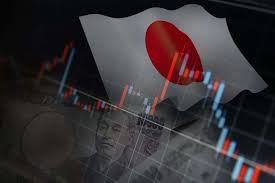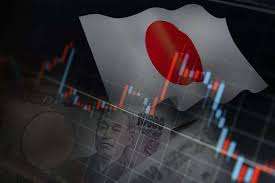
In April through June, Japan's economy expanded considerably more quickly than anticipated thanks to brisk auto exports and tourist arrivals, which lessened the negative effects of a sluggish post-COVID consumer recovery, despite the likelihood of a worldwide recession casts doubt on the future.
Gross domestic product (GDP) in Japan increased by 1.5% in the third quarter, exceeding median predictions of 0.8% in a Reuters poll by a significant margin and setting a new record.
It came after a revised 3.7% expansion in January-March and was the quickest expansion since the fourth quarter of 2020.
While the headline GDP figures give policymakers looking to strike a balance between economic growth and manageable inflation some solace, they also hide underlying weakness in the home sector.
The export-driven momentum of growth, according to Capital Economics' Marcel Thieliant, is not likely to last.
"And while capital goods exports bounced back in June as the largest falls in overseas investment are now behind us, we do not expect a vigorous recovery," Thieliant said.
Private consumption, which accounts for more than half of the GDP, decreased by 0.5% from April to June as sales of food and household equipment were negatively impacted by price increases.
While capital expenditures were unchanged, exports increased by 3.2% in the second quarter, driven by vehicle exports and inbound tourism.
Because of a weaker yen, Japanese manufacturers have benefited as sales in China have been decreasing and the transition to electric vehicles is becoming more difficult.
Exports have also benefited from robust demand from the United States and Europe, and the post-COVID surge in international travel has provided the economy a much-needed boost.
This increase in net exports, or foreign demand, contributed 1.8 percentage points to growth in the second quarter.
That net contribution, meanwhile, was also inflated by a third consecutive quarter of falling imports, which have struggled as a result of the weak yen.
Domestic demand, meanwhile, reduced growth by 0.3 of a percentage point.
"The biggest factor was a decline in imports that pushed up GDP. It doesn't mean a strong recovery in Japanese economy," said Takumi Tsunoda, senior economist at Shinkin Central Bank Research Institute.
"As such, the central bank will maintain the current monetary policy and adopt wait-and-see stance for the time being."
Real incomes started to rise for the first time in seven quarters, according to Economy Minister Shigeyuki Goto, and company investment appetite was high.
"Against this backdrop, we expect moderate economic recovery to continue although caution is needed on downside risks from global economy and effects of price hikes," Goto said.
Analysts believe that the Bank of Japan's actions last month, which allowed long-term interest rates to increase further, marked the beginning of a gradual move away from significant monetary assistance.
(Source:www.cnn.com)
Gross domestic product (GDP) in Japan increased by 1.5% in the third quarter, exceeding median predictions of 0.8% in a Reuters poll by a significant margin and setting a new record.
It came after a revised 3.7% expansion in January-March and was the quickest expansion since the fourth quarter of 2020.
While the headline GDP figures give policymakers looking to strike a balance between economic growth and manageable inflation some solace, they also hide underlying weakness in the home sector.
The export-driven momentum of growth, according to Capital Economics' Marcel Thieliant, is not likely to last.
"And while capital goods exports bounced back in June as the largest falls in overseas investment are now behind us, we do not expect a vigorous recovery," Thieliant said.
Private consumption, which accounts for more than half of the GDP, decreased by 0.5% from April to June as sales of food and household equipment were negatively impacted by price increases.
While capital expenditures were unchanged, exports increased by 3.2% in the second quarter, driven by vehicle exports and inbound tourism.
Because of a weaker yen, Japanese manufacturers have benefited as sales in China have been decreasing and the transition to electric vehicles is becoming more difficult.
Exports have also benefited from robust demand from the United States and Europe, and the post-COVID surge in international travel has provided the economy a much-needed boost.
This increase in net exports, or foreign demand, contributed 1.8 percentage points to growth in the second quarter.
That net contribution, meanwhile, was also inflated by a third consecutive quarter of falling imports, which have struggled as a result of the weak yen.
Domestic demand, meanwhile, reduced growth by 0.3 of a percentage point.
"The biggest factor was a decline in imports that pushed up GDP. It doesn't mean a strong recovery in Japanese economy," said Takumi Tsunoda, senior economist at Shinkin Central Bank Research Institute.
"As such, the central bank will maintain the current monetary policy and adopt wait-and-see stance for the time being."
Real incomes started to rise for the first time in seven quarters, according to Economy Minister Shigeyuki Goto, and company investment appetite was high.
"Against this backdrop, we expect moderate economic recovery to continue although caution is needed on downside risks from global economy and effects of price hikes," Goto said.
Analysts believe that the Bank of Japan's actions last month, which allowed long-term interest rates to increase further, marked the beginning of a gradual move away from significant monetary assistance.
(Source:www.cnn.com)





